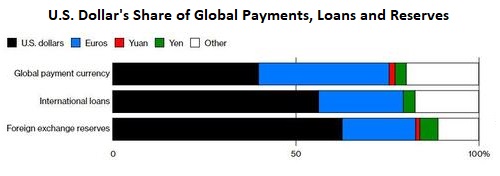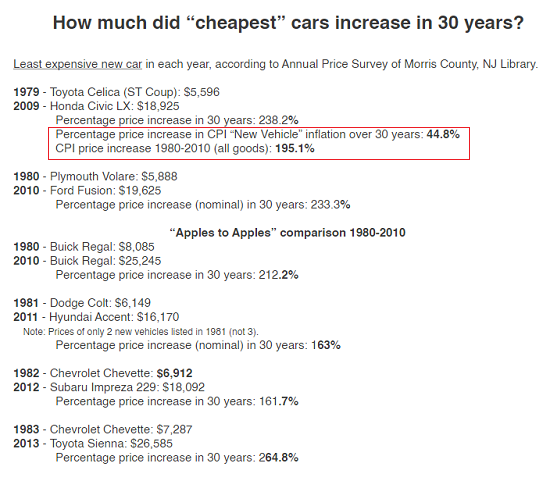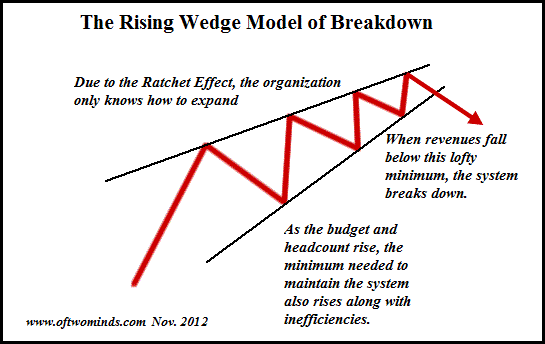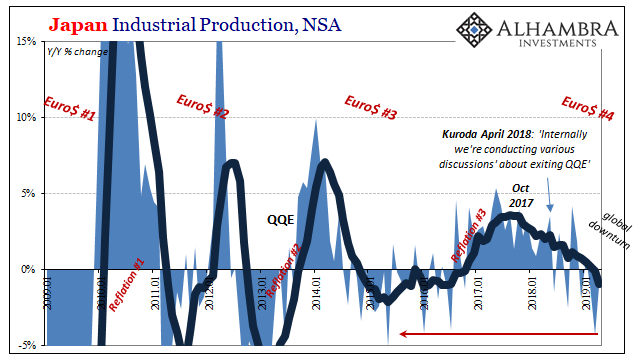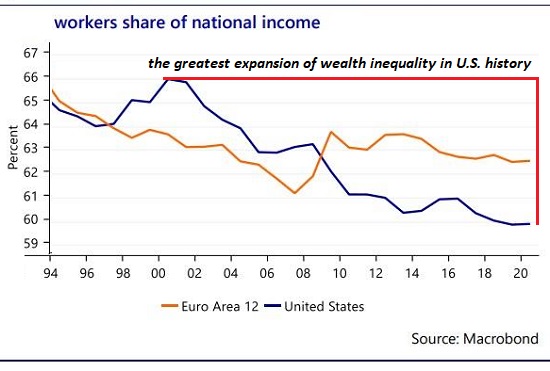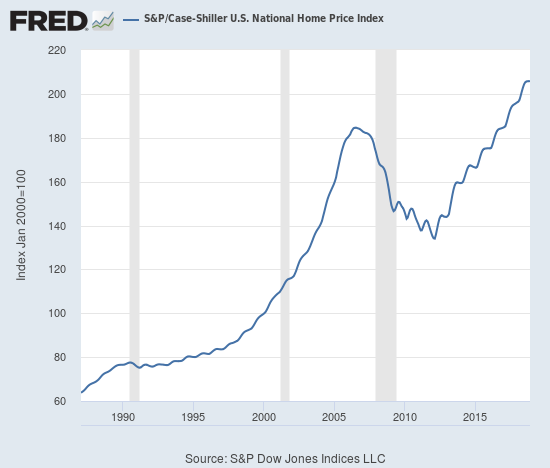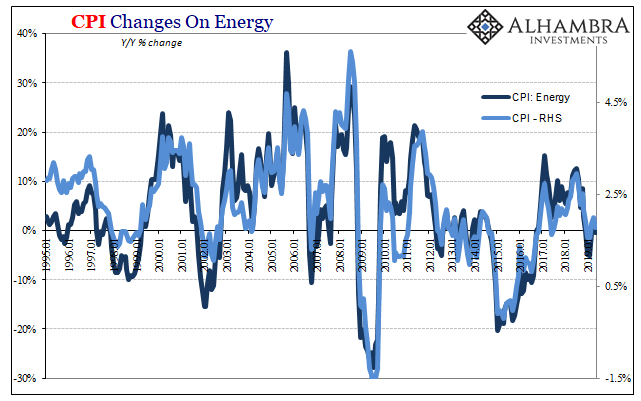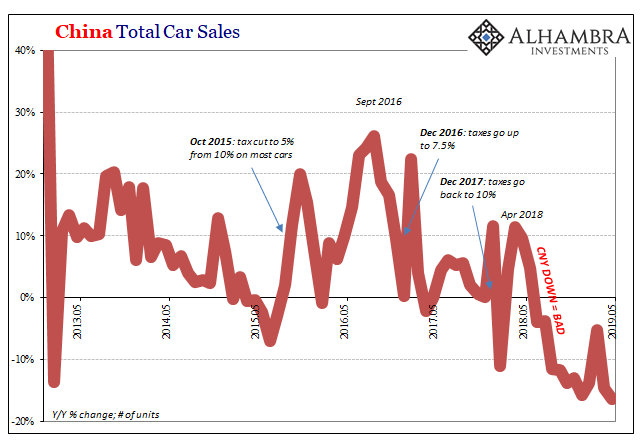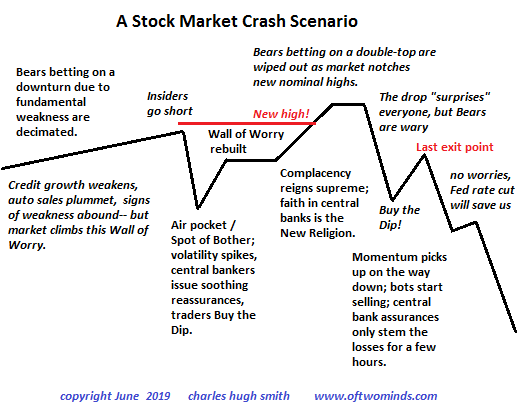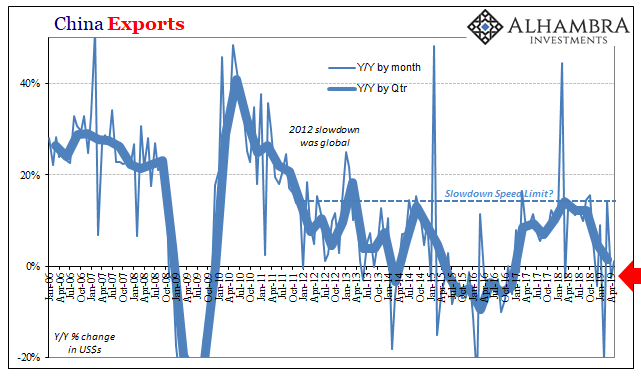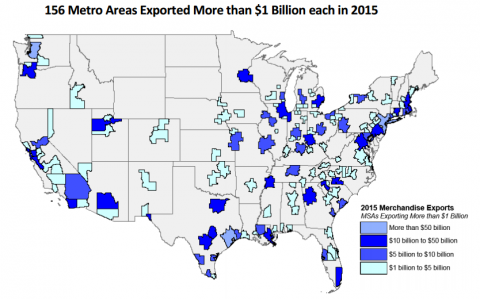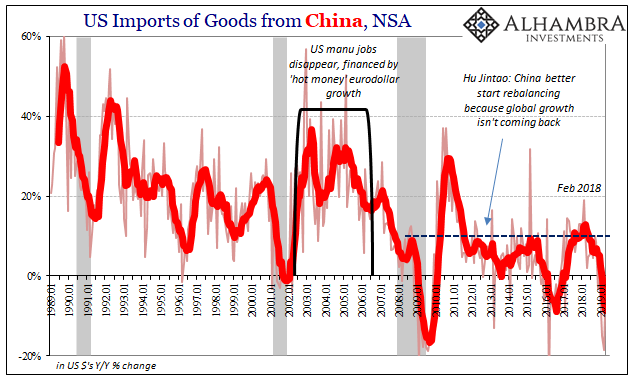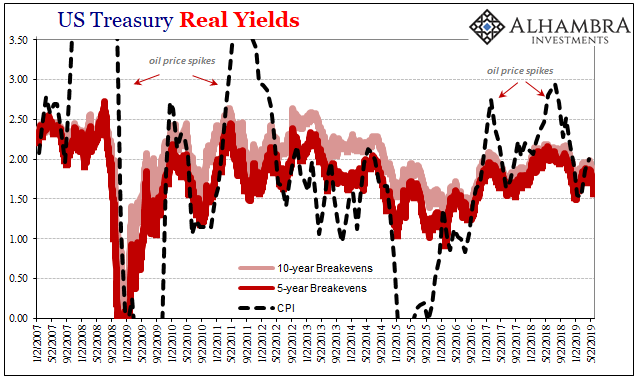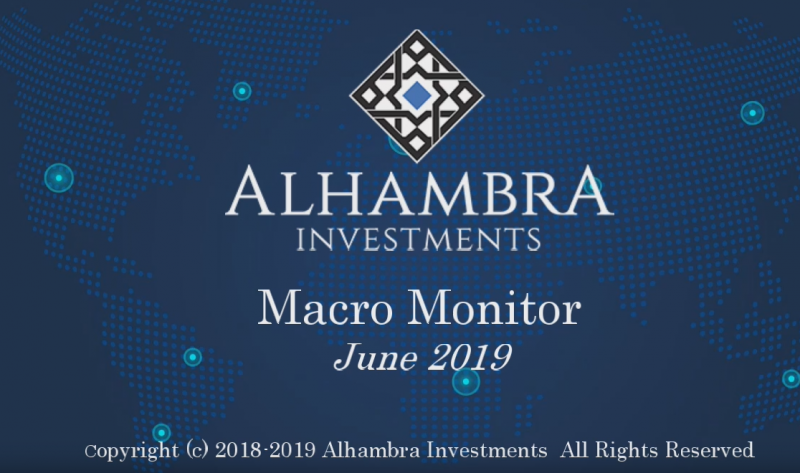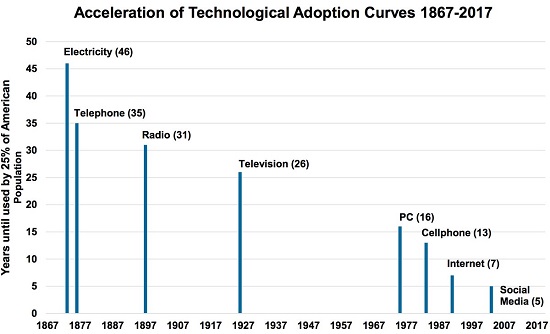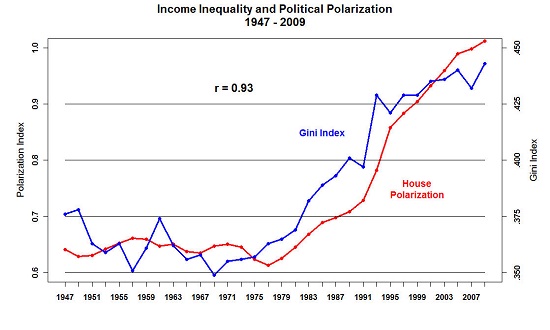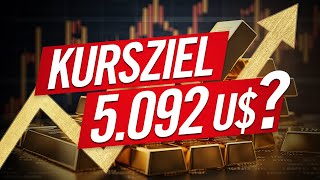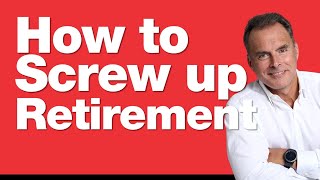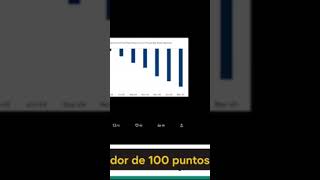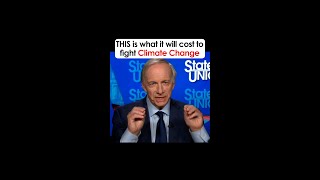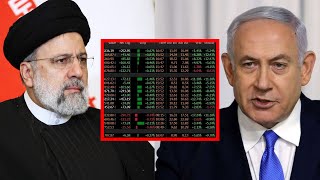Category Archive: 5.) The United States
Could a Cryptocurrency Become a Global Reserve Currency?
Could a non-state cryptocurrency like bitcoin become a global reserve currency? I first proposed the idea back in November 2013, long before bitcoin's rise to $19,000, decline to $3,200, recent ascent to $13,000 and current retrace.
Read More »
Read More »
No, Autos Are Not “Cheaper Now”
According to the BLS, inflation in the category of "New Vehicles" has been practically non-existent the past 21 years. Longtime readers know I've long turned a skeptical gaze at official calculations of inflation, offering real-world analyses such as The Burrito Index: Consumer Prices Have Soared 160% Since 2001 (August 1, 2016) and Burrito Index Update: Burrito Cost Triples, Official Inflation Up 43% from 2001 (May 31, 2018).
Read More »
Read More »
Local Government Is an Engine of Inflation
Insolvency isn't restricted to private enterprise; governments go broke, too. One reason the economy is so much more precarious than advertised is inflation has pushed households and small businesses to the edge--and one engine of that inflation is local government. This is not to dump on local government, which is facing essentially unlimited demands from the public for more services while mandated cost increases in government union employee wages...
Read More »
Read More »
Japan’s Bellwether On Nasty #4
One reason why Japanese bond yields are approaching records like their German counterparts is the global economy indicated in Japan’s economic accounts. As in Germany, Japan is an outward facing system. It relies on the concept of global growth for marginal changes. Therefore, if the global economy is coming up short, we’d see it in Japan first and maybe best.
Read More »
Read More »
The Human Cost of “Recovery”: We’re Burning Out
The asymmetries are piling up and we're cracking under the weight. Judging by the record-high stock market and the record-low unemployment rate, the "recovery" has reached new heights of prosperity. Academics and think-tankers viewing the global economy from 40,000 feet are brimming with policies to bring the remaining laggards into the booming economy.
Read More »
Read More »
The Lessons of Rome: Our Neofeudal Oligarchy
Our society has a legal structure of self-rule and ownership of capital, but in reality it is a Neofeudal Oligarchy. The Inheritance of Rome: Illuminating the Dark Ages 400-1000 is not an easy, breezy read; its length and detail are daunting. The effort is well worth it, as the book helps us understand how the power structures of societies change over time in ways that may be largely invisible to those living through the changes.
Read More »
Read More »
The Fed’s Casino Is Giving Away Free Gambling Chips (But Only to the Super-Rich)
The rest of us eat our losses, either all at once or in bitter bites as we trudge through the financial wasteland left after bubbles burst. The news that the Federal Reserve Casino is giving away free gambling chips triggered a frenzied rush that trampled the bears, including poor Yogi:
Read More »
Read More »
Dear Central Bankers: Prepare to be Swept Away in the Next Wave of Populism
The political moment when the "losers" connect their discontent and decline with central bankers is approaching. The Ruling Elites' Chattering Classes still haven't absorbed the key lesson of the 2016 U.S. presidential election.
Read More »
Read More »
How Much of Your “Wealth” Is Hostage to Bubbles and Impossible Promises?
All asset "wealth" in credit-asset bubble dependent economies is contingent and ephemeral. A funny thing happens to "wealth" in a bubble economy: it only remains "wealth" if the owner sells at the top of the bubble and invests the proceeds in an asset which isn't losing purchasing power.
Read More »
Read More »
Misplaced Pride: Most of the “Middle Class” Is Actually Working Class
If we look at these charts, it looks like only the top 10%, or perhaps the top 20% at best, might qualify as "middle class" by the metrics described below. The conventional definition of working class is based on income and education:the working class household earns between $30,000 and $69,000 annually, and the highest education credential in the household is a two-year community college degree or trade certification.
Read More »
Read More »
When Verizons Multiply, Macro In Inflation
Inflation always brings out an emotional response. Far be it for me to defend Economists, but their concept is at least valid – if not always executed convincingly insofar as being measurable. An inflation index can be as meaningful as averaging the telephone numbers in a phone book (for anyone who remembers what those things were).
Read More »
Read More »
Dimmed Hopes In China Cars, Too
As noted earlier this week, the world’s two big hopes for the global economy in the second half are pinned on the US labor market continuing to exert its purported strength and Chinese authorities stimulating out of every possible (monetary) opening. Incoming data, however, continues to point to the fallacies embedded within each.
Read More »
Read More »
A Stock Market Crash Scenario
Herds get spooked and run. That's the crash scenario in a nutshell. We have all been trained by a decade of central bank saves to expect any stock market swoon will soon be reversed by central bank sweet talk and/or rate cuts.
Read More »
Read More »
Commodities And The Future Of China’s Stall
Commodity prices continued to fall last month. According to the World Bank’s Pink Sheet catalog, non-energy commodity prices accelerated to the downside. Falling 9.4% on average in May 2019 when compared to average prices in May 2018, it was the largest decline since the depths of Euro$ #3 in February 2016.
Read More »
Read More »
What Would It Take to Spark a Rural/Small-Town Revival?
Recent research supports the idea that this under-the-radar migration is already under way. The decline of rural regions and small towns is a global phenomenon, and the causes are many but boil down to two primary dynamics: 1. Cities and megalopolises (aggregations of cities, suburbs and exurbs) attract capital, infrastructure, markets and talent, and these are the engines of job creation.
Read More »
Read More »
All Of US Trade, Both Ways, And Much, Much More Than The Past Few Months
The media quickly picked up on Jay Powell’s comments this week from Chicago. Much less talked about was why he was in that particular city. The Federal Reserve has been conducting what it claims is an exhaustive review of its monetary policies. Officials have been very quick to say they aren’t unhappy with them, no, no, no, they’re unhappy with the pitiful state of the world in which they have to be applied.
Read More »
Read More »
Janus Powell
Again, who’s following who? As US Treasury yields drop and eurodollar futures prices rise, signaling expectations for lower money rates in the near future, Federal Reserve officials are catching up to them. It was these markets which first took further rate hikes off the table before there ever was a Fed “pause.”
Read More »
Read More »
Monthly Macro Monitor – June 2019 (VIDEO)
Alhambra Investments CEO reviews economic charts from the past month and his opinion of what they mean.
Read More »
Read More »
Is the Tech Bubble Bursting?
There are two other trends that don't attract quite the media attention that soaring profits do. Is the decade-long tech bubble finally popping? Tech bulls are overlooking the fundamental reality that the drivers of Big tech's phenomenal growth--financialization and expansion into mobile telephony-- are both losing momentum.
Read More »
Read More »
A Quiet Revolution Is Brewing
Politics as practiced in a bygone era of stability no longer offers any solutions to these profound disruptions. I recently read a fascinating history of the social, political and economic context of the American Revolution: The Radicalism of the American Revolution by Gordon Wood.
Read More »
Read More »









